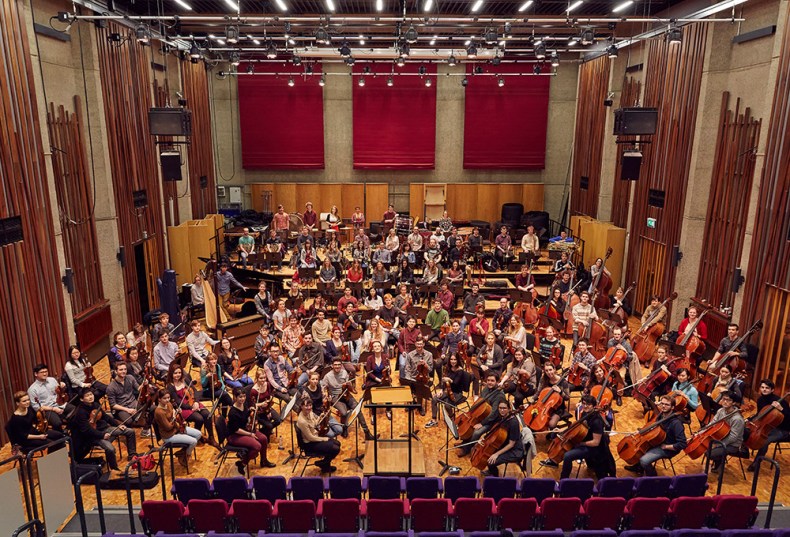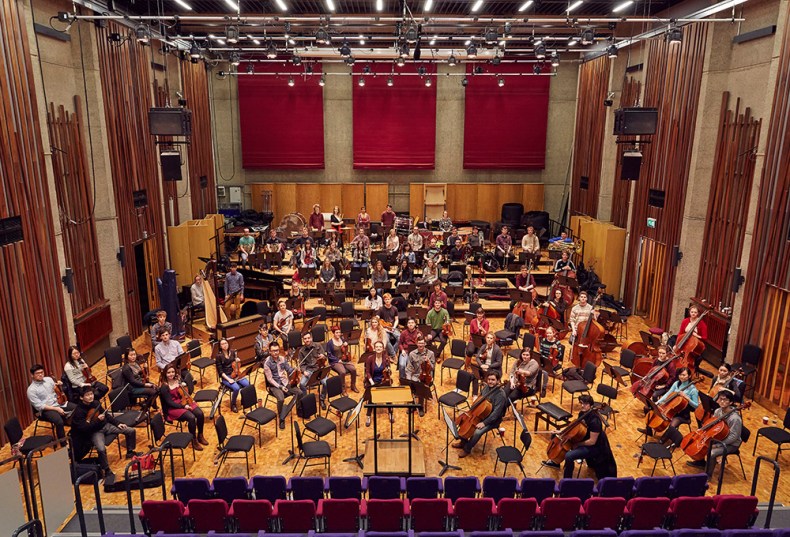Eight nights before the announcement of the UK’s decision – by a margin of 1.3 million people – to leave the European Union, six thousand guests celebrated the opening of Tate Modern’s Switch House, a space dedicated to enlarging appreciation and understanding of not just European art, but that of Africa, Asia and the Americas. In retrospect, that happy evening may come to mark the high point of Britain’s cultural internationalism. At every opening, leaving party, celebratory dinner and working meeting that I have attended since then, the mood has been one of shock and anger, followed by despair.
Yet nothing has actually happened. It is true that we face losing access to the €1.3 billion Creative Europe fund, from which we benefitted to the tune of £37 million between 2007 and 2012. No longer will European capital funding contribute to the kind of urban regeneration that has transformed our cultural infrastructure. Travel for artists and performers will be harder, in both directions. Britain was supposed to host a European Capital of Culture in 2023. That seems unlikely now. But the shock and anger is not to do with the money or the future of the creative industries. It is to do with what the vote appears to say about us as a country.
Anger and denial are the first responses to bereavement – and for many people working in the arts this does feel like a bereavement. Ninety-six per cent of the members of the Creative Industries Federation, the nearest thing we have to a representative body of cultural workers, said they wished to remain in the European Union. Because they don’t know what is going to happen, people in the arts, like most people in the country, are bewildered, and they are in mourning.

Guildhall Symphony Orchestra demonstrated the potential impact of Brexit by releasing two photographs: the first with their EU students, the second without. Photograph: Paul J Cochrane/Guildhall School of Music and Drama

In the grief cycle, anger is followed by depression. One of the most painful aspects of the referendum debate was the upswelling of resentment against ‘elites’ and ‘experts’, cleverly played on by people like Michael Gove, who qualifies as both. But if anything is going to come out of this shock to the system, there are lessons to be learned. It is noticeable how closely the demographic and the social attitudes of those who voted to remain map onto the audience for the arts: younger, university educated, metropolitan and multicultural.
They should be warned. Just before the referendum was held, an Arts Council-commissioned survey of 1,700 people in England showed that 45 per cent of people wanted the government to cut funding for the arts and culture. More than half of people over 65 wanted to see funding reduced, only a quarter of those aged 18–24. Only 9 per cent of those surveyed wanted to see an increase of spending on the arts. That figure chimes with the small number of people who are passionately involved with the arts, the so-called ‘omnivores’ who follow several different art forms, encouraged by wealth and education. They are experts, a self-chosen elite.
A common response to depression is detachment, James Joyce’s ‘silence, exile and cunning’ – but rather than go into internal exile, people in the arts need to move on to the next stage in the cycle, dialogue and bargaining. Bargaining is going to be difficult. It is ironic that the fallout from the referendum may mean that we will miss George Osborne. As Chancellor of the Exchequer his austerity measures have hollowed out local authority support for the arts, museums and libraries, but he has protected some of the larger institutions. In 2015/16 the government gave £15 million in direct support for projects such as £5.5 million towards the new Centre for Music at the Barbican, and £3.5 million for the Factory in Manchester. What price the Northern Powerhouse now?
Ed Vaizey, Minister for Culture, evidently believes in dialogue, reassuring us that the arts bring us together: ‘they are naturally outward looking, collaborative, and internationalist.’ In which case, in spite of backing Remain, it is hard to understand why he has thrown his support behind that expert hater of experts, Michael Gove.
But Vaizey has a point. Part of the purpose of the mourning process is to reach out to others, and try to find a meaning in what has happened. The resentment of elites, the difference of perception between London and the rest of the country, are lessons to be learned. The final stage in the cycle is acceptance. Brexit will happen. We need to explore new options, and put a new plan in place. The arts must remain ‘outward looking, collaborative and internationalist’. We need to persuade more people to value the arts, not despise them. Every effort must be made to sustain and extend our connections, to keep the promise of Tate Modern’s new displays alive.

Brexit will happen. The British culture sector needs a new plan
'Vote Remain' was projected onto the exterior of Tate Modern ahead of the EU referendum last month. NIKLAS HALLE'N/AFP/Getty Images
Share
Eight nights before the announcement of the UK’s decision – by a margin of 1.3 million people – to leave the European Union, six thousand guests celebrated the opening of Tate Modern’s Switch House, a space dedicated to enlarging appreciation and understanding of not just European art, but that of Africa, Asia and the Americas. In retrospect, that happy evening may come to mark the high point of Britain’s cultural internationalism. At every opening, leaving party, celebratory dinner and working meeting that I have attended since then, the mood has been one of shock and anger, followed by despair.
Yet nothing has actually happened. It is true that we face losing access to the €1.3 billion Creative Europe fund, from which we benefitted to the tune of £37 million between 2007 and 2012. No longer will European capital funding contribute to the kind of urban regeneration that has transformed our cultural infrastructure. Travel for artists and performers will be harder, in both directions. Britain was supposed to host a European Capital of Culture in 2023. That seems unlikely now. But the shock and anger is not to do with the money or the future of the creative industries. It is to do with what the vote appears to say about us as a country.
Anger and denial are the first responses to bereavement – and for many people working in the arts this does feel like a bereavement. Ninety-six per cent of the members of the Creative Industries Federation, the nearest thing we have to a representative body of cultural workers, said they wished to remain in the European Union. Because they don’t know what is going to happen, people in the arts, like most people in the country, are bewildered, and they are in mourning.
Guildhall Symphony Orchestra demonstrated the potential impact of Brexit by releasing two photographs: the first with their EU students, the second without. Photograph: Paul J Cochrane/Guildhall School of Music and Drama
In the grief cycle, anger is followed by depression. One of the most painful aspects of the referendum debate was the upswelling of resentment against ‘elites’ and ‘experts’, cleverly played on by people like Michael Gove, who qualifies as both. But if anything is going to come out of this shock to the system, there are lessons to be learned. It is noticeable how closely the demographic and the social attitudes of those who voted to remain map onto the audience for the arts: younger, university educated, metropolitan and multicultural.
They should be warned. Just before the referendum was held, an Arts Council-commissioned survey of 1,700 people in England showed that 45 per cent of people wanted the government to cut funding for the arts and culture. More than half of people over 65 wanted to see funding reduced, only a quarter of those aged 18–24. Only 9 per cent of those surveyed wanted to see an increase of spending on the arts. That figure chimes with the small number of people who are passionately involved with the arts, the so-called ‘omnivores’ who follow several different art forms, encouraged by wealth and education. They are experts, a self-chosen elite.
A common response to depression is detachment, James Joyce’s ‘silence, exile and cunning’ – but rather than go into internal exile, people in the arts need to move on to the next stage in the cycle, dialogue and bargaining. Bargaining is going to be difficult. It is ironic that the fallout from the referendum may mean that we will miss George Osborne. As Chancellor of the Exchequer his austerity measures have hollowed out local authority support for the arts, museums and libraries, but he has protected some of the larger institutions. In 2015/16 the government gave £15 million in direct support for projects such as £5.5 million towards the new Centre for Music at the Barbican, and £3.5 million for the Factory in Manchester. What price the Northern Powerhouse now?
Ed Vaizey, Minister for Culture, evidently believes in dialogue, reassuring us that the arts bring us together: ‘they are naturally outward looking, collaborative, and internationalist.’ In which case, in spite of backing Remain, it is hard to understand why he has thrown his support behind that expert hater of experts, Michael Gove.
But Vaizey has a point. Part of the purpose of the mourning process is to reach out to others, and try to find a meaning in what has happened. The resentment of elites, the difference of perception between London and the rest of the country, are lessons to be learned. The final stage in the cycle is acceptance. Brexit will happen. We need to explore new options, and put a new plan in place. The arts must remain ‘outward looking, collaborative and internationalist’. We need to persuade more people to value the arts, not despise them. Every effort must be made to sustain and extend our connections, to keep the promise of Tate Modern’s new displays alive.
Unlimited access from just $16 every 3 months
Subscribe to get unlimited and exclusive access to the top art stories, interviews and exhibition reviews.
Share
Recommended for you
Book competition
Your chance to win ‘Endeavouring Banks: Exploring the Collections from the Endeavour Voyage 1768–1771’
Poetry, painting and the world of Christopher Wood
Several notable modern poets have been attracted to the freshness of Wood’s artistic vision and the romantic glamour of his short life
‘Remainder’ replays the past in a doomed search for the truth
Let’s face it, this film about a man struggling to regain a sense of reality is perfect viewing this week